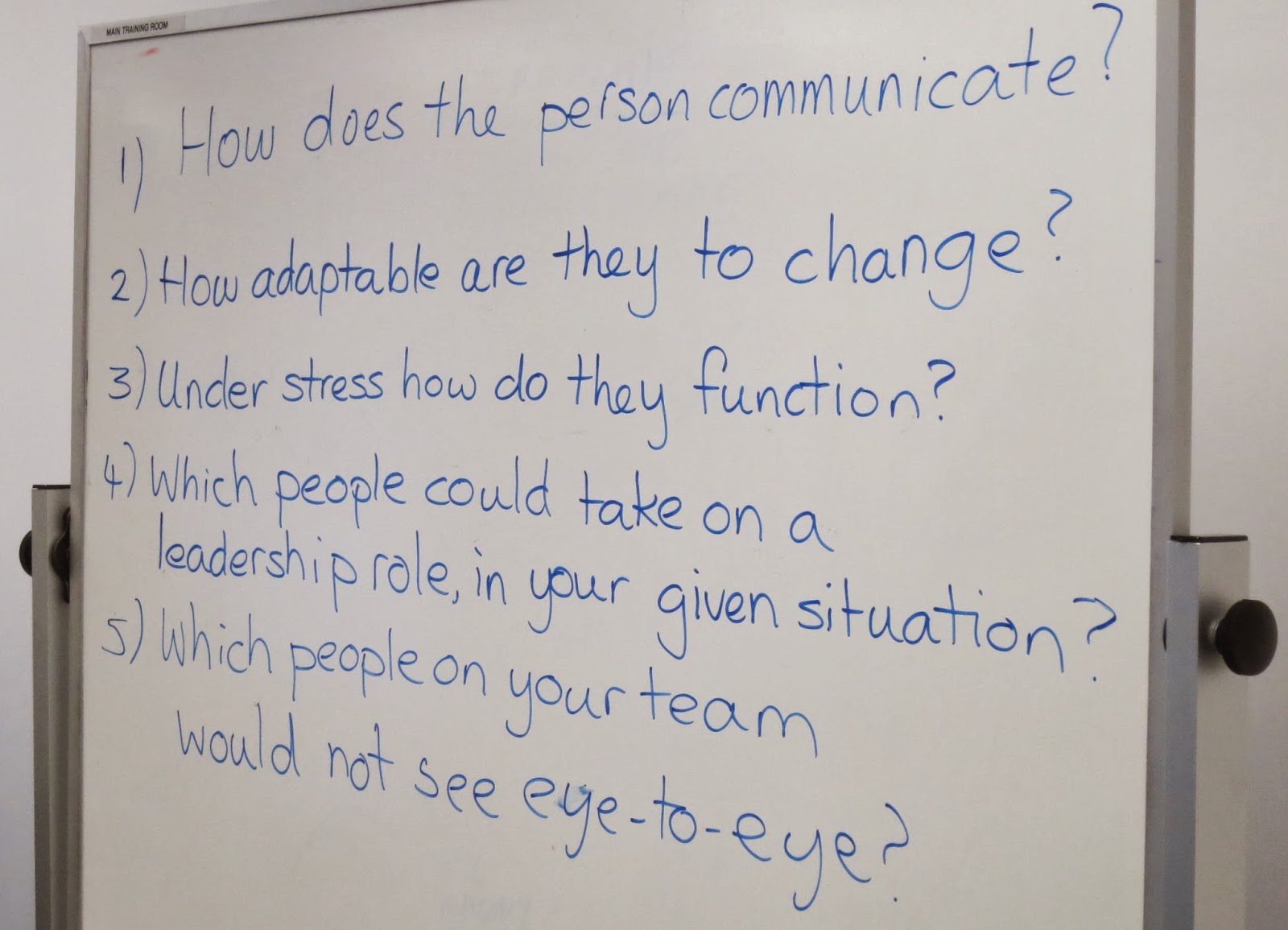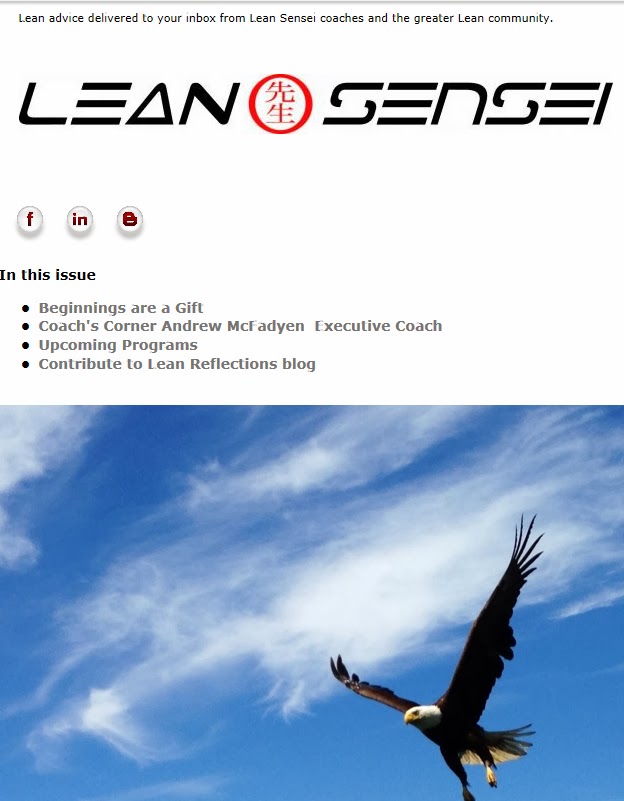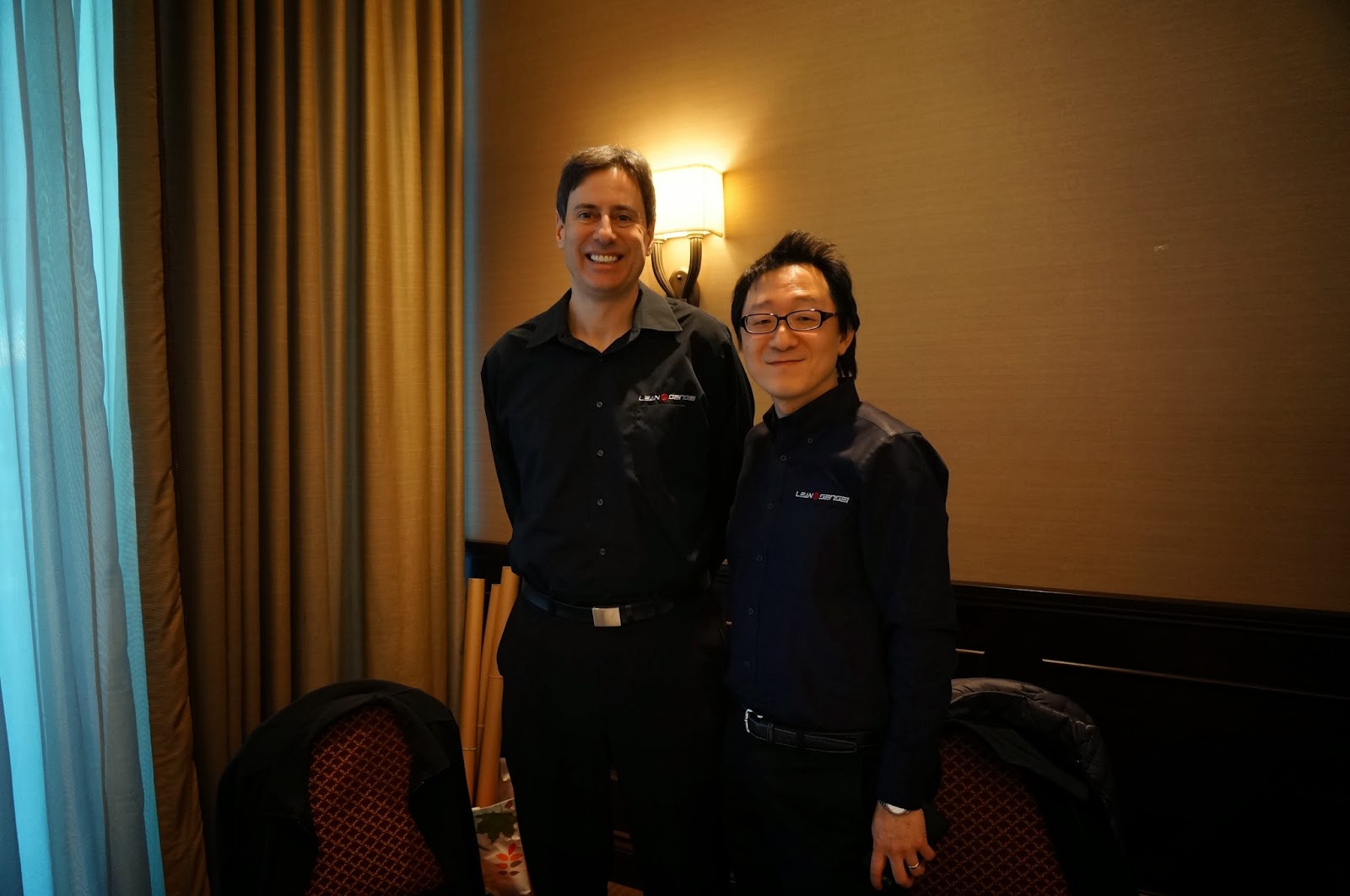Welcome back David, Jake and team
from sunny Florida. Let's keep warm in this snow by recapping the warm memories
from the trip. Below Master Blackbelt Candidate, Andrea gives us the summary of
the second day of Lean Sensei's Florida Benchmarking Tour.
Mayo
Clinic
Today we had two tour stops planned, both in
the medical field. Stop number one: The Mayo Clinic
It's a big campus with a hospital,
education centre, and outpatient clinics. They have been in operation for
150(!) years as a not-for-profit organization, and it is truly an impressive
operation. They have only really been at lean management in the last few years
at this facility (they have two other clinics in the US), and started with
focusing on teamwork, internal communication, and training.
They branded their lean initiative
"The Culture of Safety" which I thought was very clever... They don't
necessarily use the terms "lean" or "continuous
improvement" or six sigma" or other words which may make people
nervous... However, in the healthcare field, employees care very deeply about
their patients and really just want to give them the best care possible. So to
use the Safety card to get employees engaged - extremely clever
The focus on safety was a good way to encourage
everyone to feel safe to speak out about what could be done to improve patient
care, without feeling pressured or afraid.
This is a common theme, it seems, regardless of
industry. People fear raising their hand to ask for help or to point out a
problem.
Why is that?
Is it culturally-isolated to North America? I
don't think so, I have seen it in Europe, China and Japan.
Is it only front line workers? I don't think so
either, I have seen many a c-level employee exhibit this behaviour.
I suspect that it is inherent in everyone to
want to please others, and this, coupled with fear of public
shame, is what drives this behaviour. Can we learn to manage this
response? You bet. But how many employees, supervisors and managers are
actually taught anything useful about human behaviour in order to do just that?
If they are, it's often only later in their careers. A long time ago, a very
good manager of mine (one of my first) told me that "people are messy."
She didn't mean it in a bad way but in an honest, let's-face-reality, kind of
way. It was her way of saying, sometimes people's lives get messy and it's in
no ones best interest to make it worse. I have found that showing true respect
for people means that you actually have to respect people's lives
including what lies beyond the work day.
Mayo also had an impressive simulator lab - a
dojo - for learning and testing new tools and technologies. It included an
amazing digital anatomy table, where you could take real CT scans and spin,
slice, add or remove layers. Absolutely fascinating - but imagine what they
could use this for in the future? Pre-planning surgeries. Creating custom joint
replacement parts (3D printing anyone?). I have to imagine that in my lifetime,
everyone will receive regular full body CT scans as part of preventive
medicine.
Medtronics
Medtronics had decoupled most of their
manufacturing processes from their ERP system, and simply replenished what was
purchased by customers. They had a small amount of inventory as safety stock,
set into a two-bin kanban system (coach Andrews also calls this bin-ban),
such that as soon as the first bin was picked and shipped, a trigger was sent
to production to replenish the safety stock. When raw materials for production
ran low (similar two-bin system), a trigger was sent to purchasing to buy more.
So simple. They used heijunka to redirect excess staff to improvement
activities, or to overburdened areas. If pick to ship was slow but production
was hopping, staff could be moved to where the need was greatest. They also
used a simple red card/yellow card for issues - at the line, in each functional
area, and cascading up to the value stream level.
Red: needs action
Yellow: actioned with a due date
Daily 12-minute huddles only focused on the red
cards or overdue yellow cards.
The thing I like about this approach - as you
can see by the picture above - is that the supporting functions realize that if
they want to be part of the process (managing and resolving issues that is)
they need to actually participate.
In university, I had a chemistry prof who used
to joke: "If you aren't part of the solution, you're part of the
precipitate" (insert groans here).
But if you don't participate, you aren't part
of the solution. Even if it is messy at times.
Andrea MacIntosh is the Director of Quality and
Continuous Improvement for Alpha Technologies Ltd., a Burnaby, B.C.
Organization that provides power system solutions to the information and
communication technology, traffic, security, and smart grid/utility
sectors. Andrea has been with Alpha since 2011, before which time she
spent ten years in the defence supply sector (subsea technologies, electronics)
in various management roles including quality, manufacturing, supply chain and
materials, regulatory compliance, industrial security, information technology,
and contracts. Prior to that she was a business owner in the software services
sector. Her educational background includes a B.Sc. In Physics from the
University of British Columbia, and she is currently working on her Master
Black Belt in Lean Management.
The Florida Lean Tour is one
of four Lean Benchmarking Tours you can take to complete Lean Sensei
Executive Lean Certification. The Executive Leanbelt program allows you to take
one to five day workshops on specific lean topics.
Upcoming Executive
courses:
Back by popular demand: Europe Benchmarking Tour - if you are interested, please inquire as we are in the process of setting the date.
(604) 264-1000
info@leansensei.com



































